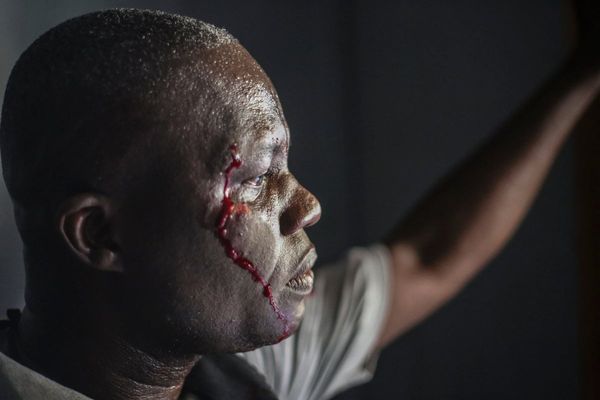Topline
A South Carolina death row prisoner chose Friday to die by firing squad instead of an electric chair, after he was required by a new law to pick or the state would choose for him—but he questioned the constitutionality of either punishment.

Key Facts
Richard Moore, 57, wrote in a court filing he more strongly opposes electrocution, but stressed he believes he was forced “to choose between two unconstitutional methods of execution.”
After a decade-long pause in executions in South Carolina due to legal problems with lethal injections, a law that went into effect last year makes electrocution the default, but also allows three volunteer prison workers to shoot rifles toward the inmate’s heart in the case a prisoner chooses the firing squad.
Moore has been on death row for two decades after he was convicted of murder in 2001 for killing a convenience store clerk during an attempted robbery—though Moore claims he acted in self-defense.
Moore, who was unarmed when he entered the store, got into a fight with the clerk, who pulled out a pistol, which Moore wrestled from him.
The clerk pulled out a second gun, leading to an exchange of gunfire that left Moore shot in the arm and the clerk dead from a gunshot wound to the chest.
If Moore is executed as scheduled on April 29, he will be the fourth person to die by a firing squad in nearly 50 years, according to the Death Penalty Information Center.
Chief Critic
Moore’s attorneys have argued he should not have been charged with a death-penalty offense in the first place, as the crime could not have been premeditated because he did not bring a gun into the store, claiming he couldn’t have planned to kill anyone during the robbery. Kaye Hearn, an associate justice on South Carolina’s Supreme Court, issued a dissent in Moore’s case. “The death penalty should be reserved for those who commit the most heinous crimes in our society, and I do not believe Moore’s crimes rise to that level,” Hearn said.
Key Background
South Carolina officials have said the state has been unable to obtain drugs for executions because it does not have a “shield law” that protects drug companies from lawsuits if the drugs are used in lethal injections. As a result, the state has not executed an inmate in over 10 years, leading lawmakers to pass a law last year reinstating firing squads. The South Carolina Department of Corrections said last month it completed $53,400 worth of renovations to the death chamber in the state’s capital to restart executions.
What To Watch For
Moore’s attorneys have asked the state Supreme Court to delay his execution until an appeals court decides whether his two options for executions amount to cruel and unusual punishment, and while the U.S. Supreme Court separately decides if Moore’s death-penalty punishment was disproportionate to others charged with similar crimes.
Big Number
8. That’s how many states use the electric chair in executions, according to the Death Penalty Information Center. Four states—Mississippi, Oklahoma, Utah and South Carolina—authorize firing squads.
Further Reading
The Return of the Firing Squad? (The Marshall Project)
Death Row Inmate Is Being Forced to Choose: Firing Squad or Electric Chair (Vice)







